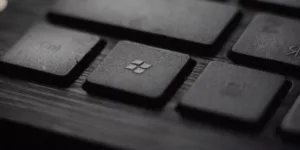A few decades back, I met with Microsoft’s then-President Steve Ballmer and pitched the idea that they should identify partners that stand out positively and recognize them in front of their peers. However, I entirely forgot that back then, folks were thinking that Microsoft was the greatest threat to how people wanted to work that existed in the world so that when Steve called these partners out, it was like he’d was outing them as collaborators. It would have been funny had it not been my idea because the people that were called out seemed to want to curl up and die.
Microsoft has changed a great deal from that time, and now people seem to be proud to be recognized. Brad Smith at Inspire this week showed us how this was done and featured several partners who were doing extraordinary things. He called them Home Town Heroes because they made a significant difference in the communities they are helping.
Let’s talk about Home Town Heroes this week and how Microsoft is leveraging partners to make a substantial positive difference in the world.
Walnut Way
One of the enormous problems we have all over the world is the lack of internet connectivity. Milwaukee is one of 8 cities chosen by Microsoft to help solve connectivity problems. In Lindsay Heights, only 12% of the population is connected to the Internet with enough bandwidth to get work done. The region needed technology to connect people, particularly during the Pandemic, and the related skills to deploy that technology. In Lindsay Heights, they partnered with Walnut Way to provide affordable broadband to the community.
You can’t improve an impoverished area unless you can get connectivity and training into the area and related good-paying jobs that increase the socio-economic level of the community. In Lindsay Heights, there is a lack of available income to pay for traditional broadband, so Microsoft stepped in with their partners to deploy inexpensive fixed wireless to help people connect and get skills.
Nice France
In France, they took a more skills-focused approach to improve technical competence. France is where Brad Smith started to work at Microsoft when he initially joined back in 1993. They spoke about needing to approach the skilling problem from two perspectives, one to help companies and two to help uplift the individual. It started with a joint project that was an AI and Cloud school which accepted students without a college degree. After seven months, they’d have either an apprenticeship or a job with one of Microsoft’s customers or partners. Similar to what Cisco does with their Networking Academy, it addresses one of the big problems with tech customers and partners regarding the lack of skills and individuals who currently aren’t qualified for good-paying jobs.
DCU
The DCU is perhaps one of the most exciting units in Microsoft. The DCU is Microsoft’s Digital Crimes Unit and the only private organization of its type that focuses on bringing cases against cybercriminals. One of the bug problems with Cyber Crimes is catching the people committing them. Law enforcement isn’t skilled enough to do this job, and since the criminals generally exist across borders, even if they had the skills, they’d be limited by jurisdiction. But the Microsoft DCU, led by an ex-FGI employee, partners with law enforcement worldwide to bring civil and criminal actions against the attackers.
Years ago, Microsoft required me, but I didn’t take the job because it didn’t appeal to me. Had the DCU existed back then, things might have been different because this is the organization that most appeals to who I was back in the 1980s. The Microsoft DCU is one of the most potent global organizations increasingly capable of destroying the profit of Cybercriminals and working to eliminate all but the State players with prejudice. It remains one of the groups I most admire in the tech segment.
Philips Wisconsin And Sustainability
Next, Brad took us to Philips Wisconsin, where he spoke to Microsoft’s Chief Environmental officer, making a massive difference. Microsoft has committed to becoming Carbon Negative by 2030 with an ultimate goal of erasing Microsoft’s entire carbon footprint, going back to its founding over time. When I’m asked about an adequate sustainability goal, I point to this goal at Microsoft. Microsoft recognizes that the environment and the world economy go hand in hand.
It is interesting to note that they started with refining measurements first to measure their progress and improve their processes, making a lasting difference. They aren’t just focused on their emissions either but also their supply and value chains. Many companies have their sustainability and profitability efforts at cross purposes; Microsoft’s change in measurements ties two together, making a positive result more likely. This effort dovetails nicely with Bill Gates’s efforts.
Wrapping Up: Caring About People
One of the tech industry problems is that companies often forget about the people that use their products. It is easy to focus on the large enterprise accounts and forget about the adverse impact you may be having on people and the environment. It is great to see people like Brad Smith and Satya Nadela. They are both exceptions and have pivoted Microsoft back to the company they were at the very beginning. One focused on positively impacting the individuals who use their products and the companies that buy them, and the partners that help implement them.
Brad Smith and his team are not only making a positive difference at Microsoft; they are making the world a better place by setting a positive example others should follow. Creating and recognizing the Home Town Heroes helping make this world a better place also goes a long way to assure that outcome. Nicely done.








